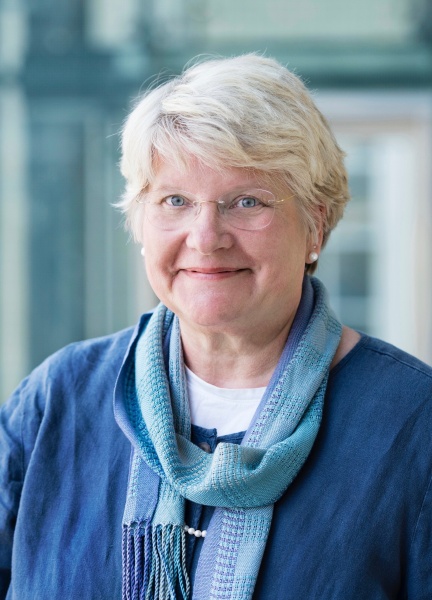What we’ve learned: Reflections at the end of our term as COPE Co-Chairs

Image credit: CC-BY-SA-3.0-migrated Jerry Segraves-jerrysfoto.com https://commons.wikimedia.org/wiki/File:Blue-reflect.jpg
We often reflect on COPE’s inspiring work here in COPE Digest. That includes the work we’re all doing to keep up with and lead change in publishing ethics as research publishing and research practices evolve. We both particularly enjoyed writing our two “end of year” letters. At the end of 2017 we wrote a review of everything that’s new from COPE, and in 2018 we looked at how we're responding to change.
May 2019 marks the end of our term as Co-Chairs. So, before our incoming COPE Chair Deborah Poff introduces herself next month (a warm welcome to you, Deborah!), we offer reflections on what we’ve learned, what we think is true now, and what we think will remain true as COPE grows. We’ve used words, of course, but also we’ve shared evidence of the actions COPE has taken to make those words come alive. These are the lessons we’ve learned.
It’s all always about people: Diversity
We’ve loved working with the elected and co-opted volunteers who give their expertise and time as the 31 members of COPE Council. We have equally loved working with the small and awesome team of staff at COPE. Council members (and COPE’s membership in general) are the people who inspire and lead the work of COPE, and for everyone’s work we’re extremely grateful. Sometimes it is a challenge to find consensus among such diverse groups of people. Where there is no consensus we’re happy to report the differences. Such is the complexity of the publishing ethics world. Preprints, for example, can be divisive. People in some disciplines happily and comfortably embrace preprinting. For others, the risks of preprints are real and outweigh the benefits. Either way, the world still needs guidance on things like preprints from COPE, and we can benefit from exploring the very real differences of opinion (by the way, our Preprints Discussion Document is being revised and will be out soon). Journal teams are another place where we champion diversity. Working with people from across cultures is what we need to address new and complex problems in publishing ethics and research integrity. Like we say above, it’s all always about people.
Make new friends: Growth
“We need a culture of responsibility for the integrity of the literature… it’s not just the job of editors” said our previous COPE Chair Ginny Barbour in 2015. All the stakeholders we meet care about research and publication ethics, and they are always more than happy to share their unique perspectives. Bringing these people together to promote integrity and ethics in research publishing will be an increasingly important job for COPE. We need more collaborations between editors themselves, when the situation demands, and also with stakeholders at universities, we need to work effectively with people around the world, and we need insights from people within disciplines that are historically less well-travelled by COPE. If the work of COPE is always about people, then we need to extend our circle of friends so that we can effectively promote integrity of the literature, and help people solve their complex publication ethics problems.
Do it together: Collaboration
We were not surprised to learn that committed people from research intensive universities and research institutes recognise the same problems that traditional COPE members recognise (traditional COPE members being journal editors and publishers). We’ve learned what we need to do to promote integrity and ethics in research publishing most effectively. We have to stop imagining that acting alone is going to be helpful. We have to start imagining how we can work together, and then collaborate. Allegations of misconduct, for example, benefit from a shared approach, something that Jo, a fictional research integrity officer at an equally fictional public university is finding out as her story unfolds. COPE will continue to focus on the people who care about research integrity and publishing ethics, and we will extend our circle to be as inclusive as we can (while maintaining the standards we hold dear). COPE will enable and support these people to act together to make a positive difference in publishing ethics and research integrity, and to respond to the need for change.
Listen, and take one step at a time
All that diversity, growth, and collaboration is going to create more complexity for us all, and we have to be honest with ourselves that COPE is a small organisation (albeit a mighty one). Making our shared ambitions a reality has always been a stretch, and that stretch increases with more complexity. We have to take one step at a time and proceed in an orderly fashion. Fortunately, we are guided and can measure our steps by listening to our members and the communities worldwide that we serve. Aspiring to better practice in publication ethics and research integrity means promoting respect for and between researchers, authors, peer reviewers, journal editors, and research administrators; it means supporting their best efforts to respect research participants, subjects, animals, and the environment; it means promoting respect amongst all stakeholders for the people who benefit from well-conducted and well-communicated research: Us all. This is a whole lot of listening for COPE to do.
Thank you, sincerely
It’s been an honour and a pleasure to serve as COPE Co-Chairs. We thank you for the lessons we’ve learned. And we wish COPE continued success in its important work to promote integrity and ethics in research publishing. Thank you!
COPE co-chairs Chris Graf and Geri Pearson


Read April 2019 Digest newsletter with the latest ideas, growing the story of Jo, our fictional research integrity officer, in her first year in post. Get dates in the diary for COPE events in 2019, particularly our European Seminar, and keep abreast of news & events in #PublicationEthics